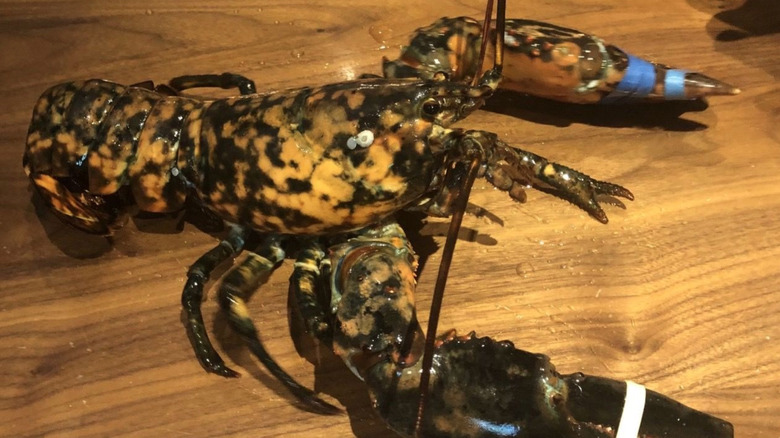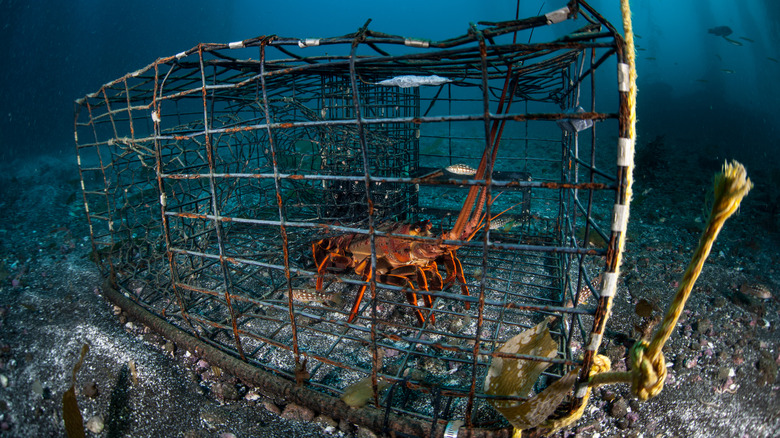Instead Of Cooking This Lobster, Red Lobster Is Sending It To A Museum. Here's Why
Red Lobster has spared one of their main courses to serve as an exhibit for the Virginia Living Museum. In a press release shared with Mashed, Red Lobster explained that the reason they will not cook Freckles, the lobster pictured above, is because Freckles is a calico lobster.
Named after the black and orange blotches that decorate their shell, calico lobsters are a true rarity, Red Lobster's press releases explains, with the chance of catching one hovering at one in 30 million. Freckles isn't the chain's first brush with rare lobsters — the press release notes that in 2020, Red Lobster donated a blue lobster, which you might catch once in every two million lobsters, to the Akron Zoo in Ohio.
These lobster donations are part of Red Lobster's general push towards sustainability. As early as 2010, the CEO of Darden Restaurants, Red Lobster's parent company, was already proselytizing aquaculture as the future of the seafood restaurant industry to ZDNet. By 2018, this transformed into specific principles laid out by FRS Magazine: Red Lobster would only catch lobsters traceable to a known and trusted source. They would only use sustainable lobsters, meaning lobsters raised by the best industry practices. Lastly, they would be observant of the quotas and other management regulations laid out by the Total Allowable Catch and other such policies.
Lobster sustainability can be complicated
As one might imagine, sourcing lobsters in a sustainable manner provides plenty of difficulties. However, the biggest difficulty may be that to be considered sustainable, you have to consider more than the lobsters you're after.
In August 2020, The Boston Globe reported that the Marine Stewardship Council, a London-based NGO that sets standards for sustainable seafood sourcing, suspended the certificate it issued to any lobsters gathered in the Gulf of Maine. The problem was that the industry neglected to consider whales when setting their lobster traps, resulting in the death of an already endangered species. American courts found that this violated the Endangered Species Act.
Now, Red Lobster was neither directly culpable nor necessarily a customer of the whale killing lobster industry. The point in bringing up the issue, though, is to highlight the interconnected nature of creating a sustainable seafood industry. Individually rare lobsters should be preserved, but so should increasingly rare species of marine life.

